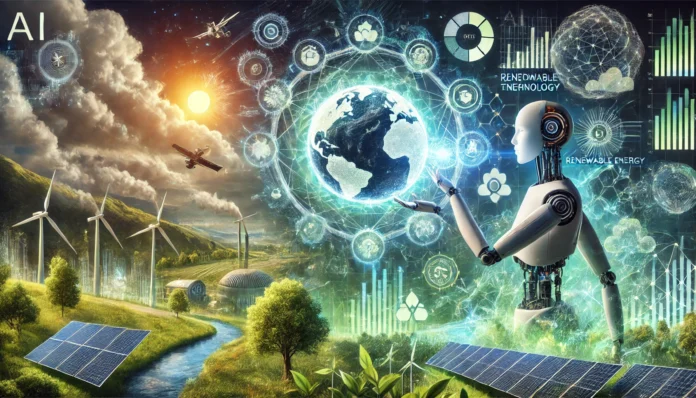The escalating urgency of the climate crisis demands innovative solutions, and artificial intelligence (AI) is emerging as a powerful ally in this fight. From optimizing renewable energy systems to predicting natural disasters, machine learning is driving actionable insights and strategies that empower scientists, policymakers, and businesses to address environmental challenges. With AI, the global effort to combat climate change is becoming more efficient, scalable, and impactful.
The Role of AI in Climate Tech
AI enhances climate technology by analyzing complex datasets, identifying patterns, and generating predictive models. These capabilities enable more effective resource management, emission reductions, and climate risk mitigation strategies.
Key Applications of AI in Climate Tech
1. Renewable Energy Optimization
AI optimizes the generation, storage, and distribution of renewable energy sources like solar and wind.
- Example: Google’s DeepMind uses AI to forecast wind power output, improving the efficiency of wind farms by up to 20%.
- Impact: AI ensures that renewable energy systems are reliable and cost-effective, accelerating the transition to cleaner power sources.
2. Carbon Emission Monitoring and Reduction
AI tools monitor greenhouse gas emissions across industries, offering actionable insights to reduce carbon footprints.
- Example: Climate TRACE uses satellite imagery and AI to track emissions from power plants, transportation, and agriculture in real time.
3. Disaster Prediction and Response
AI predicts extreme weather events, such as hurricanes and wildfires, enabling communities to prepare and respond effectively.
- Example: IBM’s Weather Company leverages AI to model weather patterns and provide early warnings for natural disasters.
4. Precision Agriculture
AI-driven systems help farmers optimize water usage, reduce chemical inputs, and improve crop yields.
- Example: Tools like Microsoft’s AI for Earth assist farmers in monitoring soil health and predicting pest infestations.
5. Climate Modeling
Machine learning algorithms simulate climate scenarios, helping researchers understand long-term impacts and devise mitigation strategies.
- Example: AI-powered models assist the Intergovernmental Panel on Climate Change (IPCC) in crafting detailed climate projections.
Benefits of AI in Climate Action
1. Improved Accuracy
AI processes vast amounts of data to produce highly accurate predictions and recommendations, minimizing errors in decision-making.
2. Scalability
AI solutions can be deployed globally, enabling widespread adoption of climate technologies in both developed and developing regions.
3. Real-Time Insights
AI provides instantaneous analysis of environmental conditions, allowing for rapid responses to climate-related challenges.
4. Cost Efficiency
By optimizing resource allocation and reducing waste, AI lowers the financial barriers to implementing sustainable practices.
Challenges and Ethical Considerations
Despite its promise, AI in climate tech faces significant challenges:
- Data Limitations: High-quality, diverse datasets are essential for training accurate AI models, yet such data is often scarce in developing regions.
- Energy Consumption: Paradoxically, AI systems can have a high energy footprint, potentially offsetting some of their environmental benefits.
- Bias and Equity: AI models must be designed to account for diverse geographic and demographic factors to ensure fair and inclusive climate solutions.
- Cost Barriers: Advanced AI tools may be inaccessible to low-income communities that are disproportionately affected by climate change.
The Future of AI in Climate Tech
As AI continues to evolve, its potential to drive climate action will expand in several ways:
- Decentralized Energy Systems: AI will enable the efficient management of microgrids, enhancing energy access in remote areas.
- Circular Economy Innovations: Machine learning will optimize recycling processes, waste reduction, and sustainable material design.
- Policy Support: AI tools will help governments craft evidence-based policies to meet ambitious climate goals.
- Global Collaboration: AI platforms will facilitate cross-border cooperation, sharing insights and technologies to combat climate change collectively.
Conclusion
AI’s integration into climate tech represents a critical step toward addressing the global environmental crisis. By unlocking new efficiencies, insights, and innovations, machine learning empowers humanity to combat climate change with unprecedented precision and effectiveness. However, to fully realize AI’s potential, it must be deployed responsibly, with a focus on equity, transparency, and sustainability. As we navigate the challenges of the climate crisis, AI stands as a beacon of hope, offering the tools and strategies needed to secure a sustainable future for our planet.





